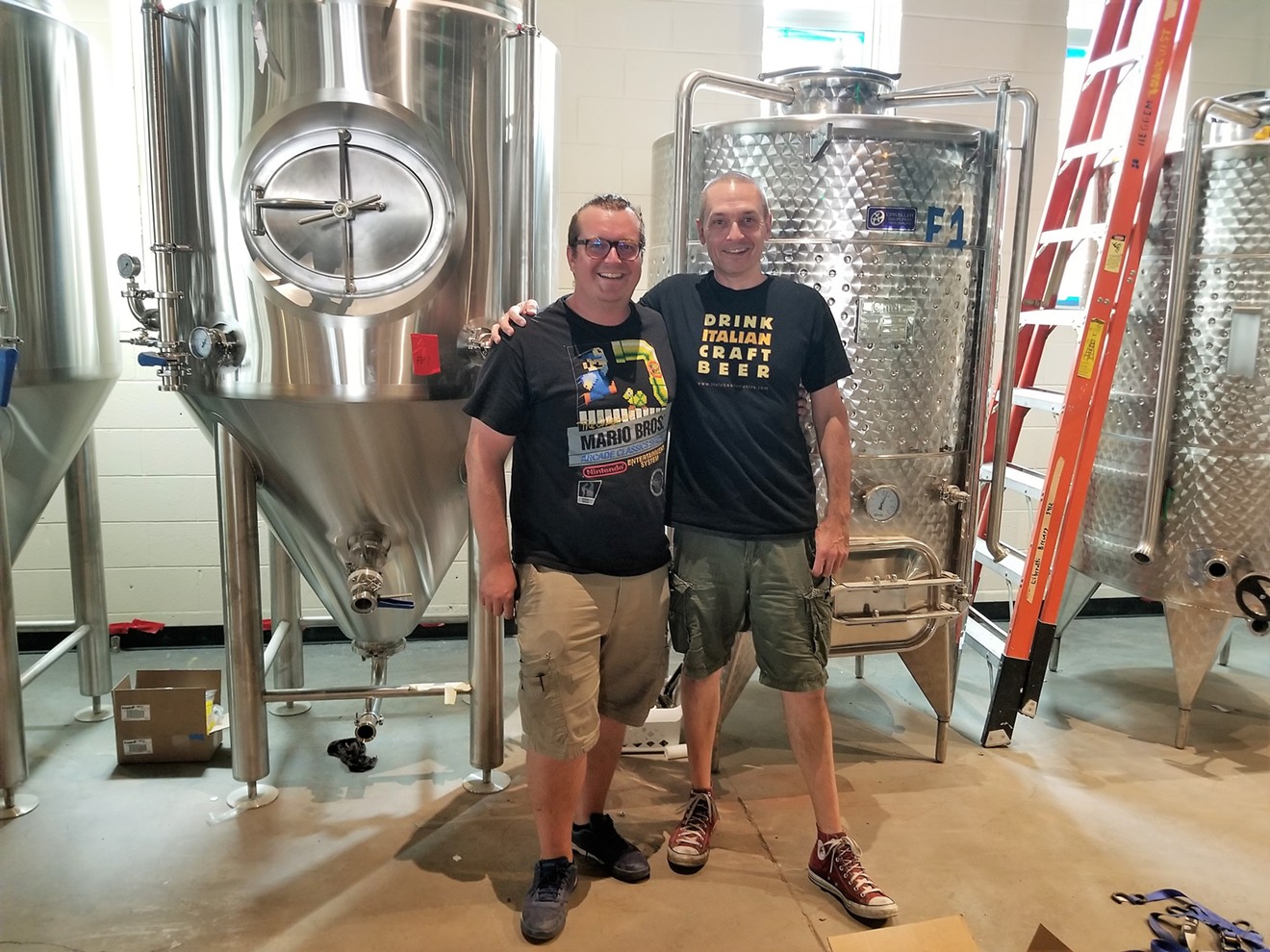Grape or grains? "Entrambi," as the Italians say — which means "both." Grape-based beers will soon be on tap at Liberati Osteria & Oenobeers at 2403 Champa Street, when Italian brewer and restaurateur Alex Liberati and partners open the doors later this year.
So, what's oenobeer? It’s the name for grape-based beer coined by Liberati, based on the prefix "oeno" (pronounced "eeno"), which means “pertaining to wine.” Liberati says the word better captures the essence of what his brewery will produce than grape beer or grape ale. “We needed to call it something other than ‘grape beer,’ which sounds like ‘great beer,’" he notes. "It deserved its own name. It’s a new path.”
As for the osteria part, it's the name for traditional roadside restaurants in rural Italy that serve simple homemade food and wine. You can still find them in the countryside, though some have gone upscale and serve fancier fare while still evoking the charm of a family-owned establishment.
Grape beers are a relatively new product, compared to the 10,000-year history of grain-based brewing, so Liberati is writing his own recipe book. An experienced brewer, beer importer and beer drinker, Liberati revels in the challenge. While blending is common in wine production, it’s generally a no-no in brewing. When making grape beers, Liberati has the chance to blend different kinds of malt, yeast, beer styles and grape varietals. With the enthusiasm of a scientist or chef, the brewer points out that his oenobeers will run the gamut from 2 percent to 20 percent ABV and will not contain sulfites (which many wine producers use as a preservative).
The Beer Judge Certification Program is a standards guide that describes Italian Grape Ale as “a sometimes refreshing, sometimes more complex Italian ale characterized by different varieties of grapes.” The yet-to-be-named riesling beer I tried on a recent preview had the refreshing acidity of wine and the smooth drinkability of beer. Tangerine in color, it was naturally carbonated and carried a hint of dry riesling on the nose. This oenobeer would taste great with cheese, pork loin or a chicken sandwich. Unlike many wines, the beer-wine crossbreed would also be welcome after a hike or playing hard in the hot sun.
How did Liberati get into grape beers? Back in his native Italy, he was a kind of ambassador of beer bringing the tastes of northern Europe and America to Rome while brewing his own unique beers and ales. In 2008, Liberati sat down with a local winemaker to talk about a joint project. He was skeptical, asking, “Why put grapes into something that is already perfect?” The conversation went nowhere, but sometime later, a friend shared his brew — a beer with 10 percent grapes — with the then-skeptic. “I remember the moment perfectly: where I was sitting, the light, the table," he recalls. "It clicked.” The taste inspired him to make his own Italian grape ales.
Liberati still loves a traditional beer, but he likes the challenge of something new. Back when good microbrews were hard to find, he enjoyed hunting for them. “Good beer was a treasure; it was an adventure of discovery. When you found an amazing, delicious beer, it was like, “Boom!” Now he’s taking that spirit of discovery and abundant enthusiasm to crafting and serving oenobeers to patrons in his new home town.
Liberati initially announced his intentions to open a brewery and restaurant nearly three years ago in the former Golden Bell Press building, but much work was needed to convert the space. Now oenobeers will be ready to quench Denver's thirst for something new, possibly as soon as mid-September.
[
{
"name": "Air - MediumRectangle - Inline Content - Mobile Display Size",
"component": "12017618",
"insertPoint": "2",
"requiredCountToDisplay": "2"
},{
"name": "Editor Picks",
"component": "17242653",
"insertPoint": "4",
"requiredCountToDisplay": "1"
},{
"name": "Inline Links",
"component": "18838239",
"insertPoint": "8th",
"startingPoint": 8,
"requiredCountToDisplay": "7",
"maxInsertions": 25
},{
"name": "Air - MediumRectangle - Combo - Inline Content",
"component": "17261320",
"insertPoint": "8th",
"startingPoint": 8,
"requiredCountToDisplay": "7",
"maxInsertions": 25
},{
"name": "Inline Links",
"component": "18838239",
"insertPoint": "8th",
"startingPoint": 12,
"requiredCountToDisplay": "11",
"maxInsertions": 25
},{
"name": "Air - Leaderboard Tower - Combo - Inline Content",
"component": "17261321",
"insertPoint": "8th",
"startingPoint": 12,
"requiredCountToDisplay": "11",
"maxInsertions": 25
}
]












